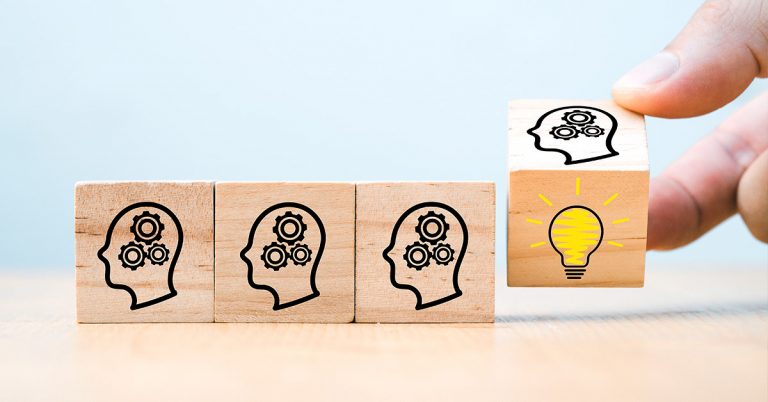Education programs of modern schools are designed to prepare students for all the challenges of their professional career. Learning different areas and mastering extensive material takes time and practice, clearly those who acquire knowledge faster will have more time for other activities and additional training. Therefore, it is important that children acquire habits and qualities that will accelerate and facilitate their learning process.
What is fast learning
Fast learning is the process of acquiring new knowledge and problem solving skills with emphasis on time management. It is a very useful learning skill that allows the acquisition of large amounts of information in the quickest and easiest way, which is why this learning process requires a correct approach. To become a fast learner, a person needs to improve soft skills such as:
- Flexibility – finding one’s way in a variety of situations is crucial for every fast learner. This skill is not only important at school but in real life as well. Resourceful persons achieve better results than those who are able to function only if everything is perfect;
- Communication – although learning is often a process where a person independently acquires new knowledge, exchanging ideas and experiences significantly speeds up this process. To do that, students need to use their social skills to clearly and articulately explain their attitudes, both orally and in writing. This is why modern schools encourage in-class communication and teamwork in finding the best solution. This process also improves interpersonal relationships between students, which positively affects learning quality and pace;
- Time management – time perception is crucial for fast learning. To make the best use of time, a student needs to be organized, define priorities and make a realistic work plan. Although it may sound simple, improving one’s time management skills takes a lot of practice and a strong will.
- Motivation – to achieve the desired result, students need to be motivated to come up with a solution of their own. Fast learning requires commitment and a high level of motivation to achieve the desired goal. Motivated students have much higher chances of achieving success, not only at school, but in their future career as well.
- Problem solving – students face numerous challenges during their education. Solving each one of them requires patience, sharp focus and keeping calm in stressful situations (e.g. deadline for completing a project, taking a test, taking the entrance exam, etc.). Moreover, to define a problem, design and implement a solution, one must possess analytical skills.
How to learn faster?
Fast learning requires a special set of skills, but also certain preparations. For starters, you should know that every person is special in their own way, and that there is no universal recipe for successful learning. The trick is to adapt certain processes to a person’s character and preferences, but also to the subject of learning. Thus, it is not the same to learn a foreign language, painting, playing an instrument, to participate in a science project, or to play a sport. Therefore, recognizing the most appropriate learning style is crucial.
- Visual learning – this type of learning involves the use of graphs, arrows, drawing and painting. Subjects are learned faster through visualization, because things are often learned more easily with instructions (e.g. video or images).
- Auditory learning – the focus is on information that can be heard. Listening to lessons or learning songs in a music education class are just some of the examples of this form of learning. Some people learn more easily if they listen to audio lessons or say the material out loud.
- Learning through reading and writing – when a person needs to acquire a large amount of data, it is sometimes better to read and write the information repeatedly. This way, data is unconsciously memorized, and easier to reproduce later. This method is perhaps closest to traditional learning, because it is based on reading and making notes.
- Kinesthetic learning – tactile learning in which learners acquire new knowledge by performing specific tasks. This way, people can improve their sports skills and acquire knowledge of numerous other areas that require doing something with one’s own hands (playing an instrument, cooking, repairing machines, lab experiments, etc.)
Choosing the best approach to fast learning is just the beginning, and it should also be noted that one learning style does not exclude the others. On the contrary, in many cases, combining different methods is recommended to make learning as efficient as possible. Moreover, it is often necessary to adapt the learning method to fit the material, in other words, there is no one-size-fits-all approach nor a copy/paste method.
9 tips for faster learning
With the right approach to the subject matter, every student can become a fast learner. There are several methods that help in this process, and choosing the one that works best for you depends on your character and preferences. After testing them, everyone will create a combination that best suits them. Below, we will present a few useful tips for fast learning.
- Defining a clear goal
What is considered a learning success? Is it to learn as much as possible within the specified deadline, or to master the specified material in the shortest possible time? If you have a realistic goal, it is easier to give your maximum. Thus, a student will learn with more enthusiasm if they know the goal is to master two lessons as fast as possible, and the complete material. Unrealistic goals are the chief enemy of fast learning, because learners lose focus for fear that they won’t master the material on time.
- One thing at a time
At first, it may seem that there are too many things to learn and too little time. Many make the mistake of skimming over the text, trying to pick up as many facts as possible. The truth is that the learning process will be much more efficient if the material is split into several smaller chunks. That way, students will learn faster and be more thorough, and the feeling of triumph after mastering each segment will surely give additional motivation and a feeling of accomplishment.
- Creating a realistic plan
To be a successful learner, one needs to estimate well how much time they need to cover a certain material. Students often make overly optimistic estimates which is why they lose momentum and fail. It is better to give yourself more time than to be constantly under stress.
- Learning through lectures
Many children struggle with learning when they are on their own. They learn too slow, struggle with maintaining focus, and simply lack motivation. However, it has been proven that students learn much faster when they need to help others. One study concluded that the reason for that is a change of approach, because a student wants to learn something to convey knowledge to others, not just to pass an exam. Learning in pairs, where each student teaches the other, achieves exceptional results. Namely, not wanting to disappoint their partner, students master the material quickly and efficiently.
- Learning to learn
Fast learning is a serious psychological effort that demands good habits and commitment. For starters, one needs to define the time of day dedicated to studying. In addition, it is also necessary to always learn in their designated study space. The study space should only contain things necessary for learning. The process should always last the same so that the learner’s organism would get used to the routine.
- Using multiple sources of information
Mastering the learning material is much more efficient if we use multiple sources. Sometimes, we can save hours of studying by watching an educational film, or attending online courses. This particularly applies to school projects that demand students to research the subject. Fortunately, the Internet provides access to countless sources of information: online books, blogs, videos, podcasts, forums, social media, etc. This is also a great practice for more complex tasks that will come later in college, or in one’s future job.
- Taking notes
Some information may fall through the cracks in fast learning. This is why it is important to regularly take notes on the most important details. Some people prefer taking written notes, others prefer drawings, while some find it easier to record themselves. Your method of note-taking is less important than the fact that this trick will help you achieve significantly better results.
- Rest and physical activity are an integral part of learning
Although it may seem fast learning is a continuous process, rest is an integral part of it. Being concentrated on the task requires good sleep, and taking regular study breaks. This is why you should avoid stressful situations, such as rote learning the night before an exam. The brain, just like the rest of the body, needs rest to be able to receive and process information.
Going to bed and getting up at the same time is a good habit. Of course, at least eight hours of sleep is a minimum, while younger learners need even more. In addition, the body needs rest after learning, which is why learners should take breaks that involve walks or physical activity. Remember the old saying: “Mens sana in corpore sano” – “a healthy mind in a healthy body”. It was created for a reason.
- New learning methods are always welcome
There is no learning method that is a perfect fit for everyone. This is why children should test different methods to reach a winning formula. School age is the perfect time for experimenting, because finding the most efficient techniques is crucial for more complex challenges in college, and later, in one’s professional career.





